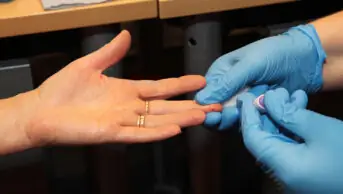I have been watching the debate about the Royal Pharmaceutical Society (RPS)’s move to royal college status with considerable concern. Those of you with long memories might remember me, as a young-ish president more than 30 years ago, and then president again in the contentious times some 20 years ago when the RPSGB campaigned to ‘Save our Society’. Today we will need to ‘Save our college’.
In those days, we were concerned about the charter object of safeguarding the interests of pharmacists and fought very hard to retain this object in the charter; however, those events were now 25 years ago and the world has moved on.
First, the younger generation does not seem to join mutual bodies in the same way as before and you have only got to look at the rise of social media to see why. In 2005 and before, we went to branch meetings to meet and exchange ideas with colleagues, to week-long conferences that included dinners, balls and lectures. We networked (and plotted) in the bars in person. Today, such discussion is done through social media, in WhatsApp groups and in lectures via Zoom.
What is more, with finances tight, most prospective members want to know what benefits they are getting for their money. Representing the interests of pharmacists is seen as a pseudo trade union function. That is done by others in pharmacy and what is more, looking from the outside at our constitution and governance, the public would now say “they should be working for us not looking after their own interests”.
Yet, in recent years, the status and importance of pharmacies and pharmacists has been rising considerably. This can be put down to the COVID-19 effect, when pharmacies stayed open throughout the pandemic; an increased profile by providing vaccinations and similar services; Pharmacy First; and all new pharmacists with being prescribers.
It is clear to me that the Society needs a reset. It needs to become much more like the royal medical colleges which, incidentally, also look after the interests of their members. The future is going to be different and, once again, the pharmacist — as the medieval apothecary did — will become a variety of GP; a medical first port of call. Hence, we need to align with the medical professions and recognise that we should be primarily serving the public.
I have certainly accepted that, owing in large part to changes in society, what we campaigned for 25 years ago no longer applies, or rather is different. Support the changes — become a royal college and look forward to a bright future.
Nicholas Wood, president of the RPS, 1993/1994 and 2004/2005
3 comments
You must be logged in to post a comment.


Completely agree, the society should look after the interests of their members. I have been trying so hard to pin point, from all the information given to us so far, the actual benefits of switching to royal college? Would the Royal College be in a position to negotiate with the government to ring-fence funding for pharmacy? Would the Royal College scrutinise the policies laid out by the government in order to protect our rights such as fair pay (reasonable pay increments), working conditions etc.
No, and never has.
Too many questions unanswared ,especially on the financing and costing of this change, and I therefore urge to vote NO.